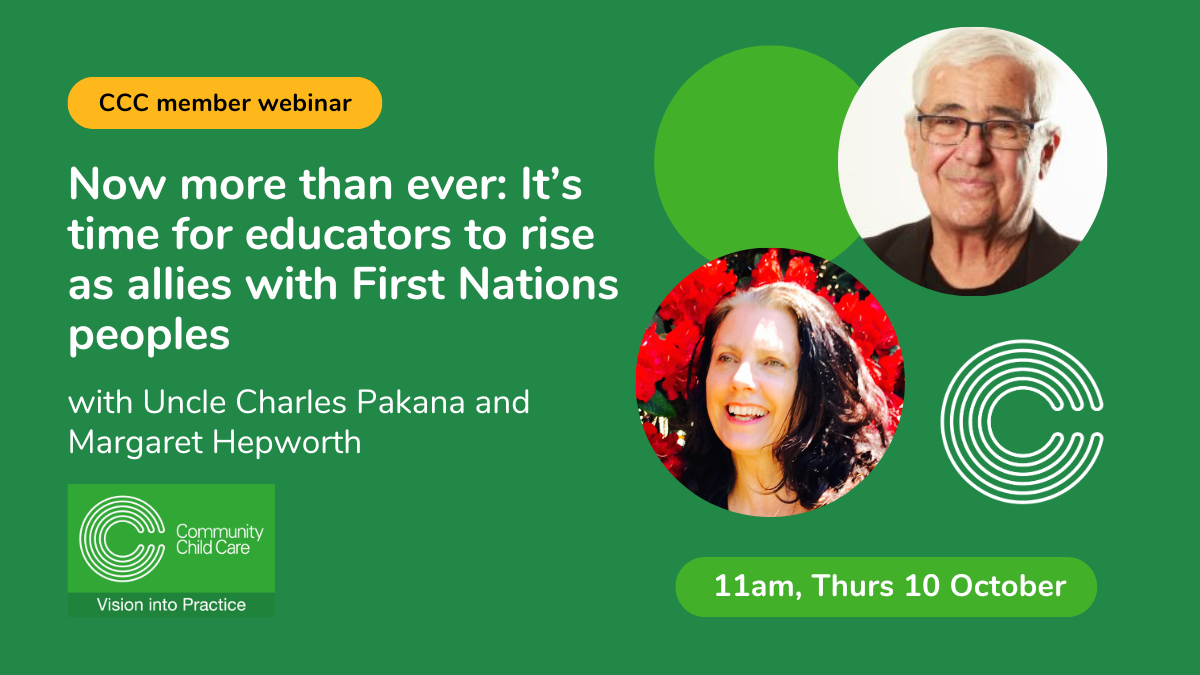Our vision for reconciliation
Our vision for reconciliation is to provide leadership to others in supporting relationships that are respectful, welcoming and inclusive of Aboriginal and Torres Strait Islander people.
Our RAP
We recognise that unless we are committed to reconciliation through a practical action plan, the small and significant changes necessary to shift from positions of racism, ignorance and tokenism will not be achieved. We believe that our Innovate Reconciliation Action Plan will provide practical strategies for building and renewing deeper partnerships and engagement with Aboriginal communities, organisations, families and individuals so that we can learn from each other as we work to build a more equitable and socially just nation.
We support The Uluru Statement from the Heart
Here at CCC, we choose to take part in changing Australia for the better. That's why we support The Uluru Statement from the Heart.
The Uluru Statement from the Heart calls for the establishment of a First Nations Voice to Parliament enshrined in the Constitution and the establishment of a Makarrata Commission for the purpose of treaty-making and truth-telling.
A First Nations Voice to Parliament will ensure the Government has better quality information about First Nations communities and issues, delivered directly by First Nations representatives. This means better laws and policies, more targeted resource allocation, and improved outcomes for Aboriginal and Torres Strait Islander children, families and communities.
Learn how you can support a fairer and safer future for all Australians and discover Uluru Statement from the Heart resources.
Now more than ever: It's time for educators to rise as allies with First Nations peoples
Now more than ever, truth-telling, understanding First Nations history and tackling racism have an important place in our early learning and OSHC spaces.
In our recent member webinar, Aboriginal leader Uncle Charles Pakana and Victorian Education Coordinator at Together for Humanity, Margaret Hepworth, explored what it means to be an ally.

Now more than ever: It's time for educators to rise as allies with First Nations peoples
Together, we can forge connection. We can build respect. We can take action and create change.
Please be aware that this webinar recording contains content that may cause sadness or distress.
Want to learn more about Aboriginal and Torres Strait Islander reconciliation?
Find the organisations that are leading reconciliation in Australia on our useful links page
Explore the 'Narragunnawali: Reconciliation in Education' website
For early childhood and OSHC services interested in creating their own Narragunnawali RAP
‘I’d never heard of a Reconciliation Action Plan until 2017 when Community Child Care Association launched their first RAP at an event I attended. I thought – this is something we could do. After some research and conversations, I realised it was something I really wanted for Spensley Street OSHC.
Since then, I’ve worked with the school community to create a school-wide RAP. I’ve made so many new connections throughout this reconciliation process. Those conversations have been positive, important and sometimes confronting.
When I started this process, I was scared to make mistakes and say the wrong thing. I’ve learnt to have the courage to ask questions, and to really listen to the answers. I’ve had my eyes opened to the truth about Australia’s history. When I brought the idea for a RAP to my school, so many interested people came out and engaged – I’ve been so encouraged by the conversations I’ve had with families and teaching staff, and the enthusiasm from the community. The children have always been willing learners of First Nations culture and history.
I’ve spoken to a lot of coordinators and directors who are thinking about starting their own RAP. My advice is: take the plunge and make it count. Support and resources are there for you.’
Lisa Heard, Coordinator, Spensley Street Primary School OSHC, CCC member and RAP champion